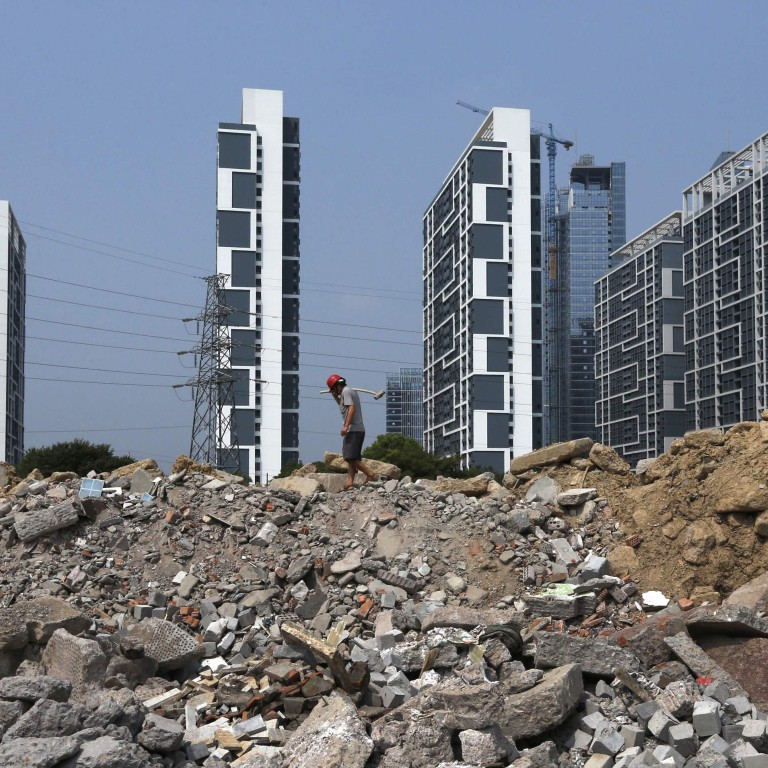
Government not serious about lower home prices, developer says
Industry players believe Beijing wants land prices to stay high to ensure stable revenue for local authorities despite vows to cool market
Mainland developers are growing frustrated with the disconnect between the government's measures to cool property prices and its reluctance to allow those for development sites, a crucial source of local authorities' revenue, to decline.

"In all the tightening campaigns for the property market, we haven't seen the government ever consider getting less money from the land market or cut taxes," Ren Zhiqiang, chairman of state-owned developer Huayuan Real Estate, told a forum in Boao on Thursday.
"So they actually do not want home prices to fall. When home prices are just starting to fall and everyone says it's a good thing, the government lifts home purchase restrictions. Dare they undergo the downturn and not scrap the restrictions? The problem is that the government does not want home prices to fall. It wants land prices to stay high."
Local governments, desperate to raise revenue from land sales, had urged state-owned enterprises to prop up the market, driving land prices to record highs, industry observers said.
On Thursday, a new "land king" - as development sites that are sold for record prices are dubbed - emerged in Fujian province. State-owned Fuzhou Hai Sheung Real Estate Development paid 518 million yuan (HK$651 million), or 12,634 yuan per square metre, for a site in Xiamen's Xiang An district.
In Zhengzhou, Henan province, a prime residential site went to Zhengzhou Real Estate Investment, also state owned, on Wednesday for 524.3 million yuan, 128.6 per cent higher than the auction's starting price. The price per square metre of 16,143 yuan is a record for the area.
The mainland could start to impose a nationwide property tax in 2017 and, by the end of this year, the cabinet would submit a draft to lawmakers for readings and discussions, said a top government adviser on tax.
Jia Kang, head of a think tank under the Ministry of Finance, said the mainland would not expand a trial, started in 2011 in Shanghai and Chongqing, to other cities this year.
The new leadership pledged earlier this year to speed up efforts to draft and pass a law on property tax. That is taken by some experts as a sign that Xi is not happy with the trial as it failed to curb housing inflation in the two municipalities.
"That's an improper interpretation," Jia said. "A suspension for one or two years does not mean no action in the future."
But Gu Yunchang, a senior adviser to the Ministry of Housing and Urban-Rural Development, said he expected the law to take longer to be approved.
In Jia's optimistic expectation, lawmakers will have four rounds of readings on the State Council proposal next year, accompanied by heated debates, and then reach a consensus in 2016.
A market downturn is hitting local governments' coffers this year as land premiums and property-related tax contribute at least a third of their income. In some cities, the ratio can exceed 90 per cent.
Gu said land prices were still on the rise in the first half and the pace could slow in the second. "Backing up high home prices are expensive land prices," he said. "The land market is monopolised [by the government]."
While some in the forum expect the property market to recover later this year, Gu said: "The bad fundamentals remain unchanged, with all the old [land, fiscal and financial] systems still plaguing the industry."

